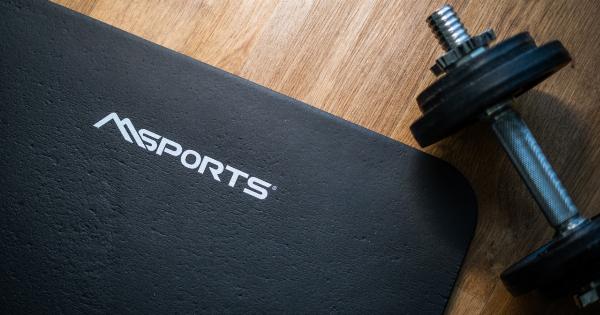Hemorrhoids is a common health condition that affects millions of people around the world. It is caused by the inflammation and swelling of the veins in the rectum and anus.
The condition is not only painful but also embarrassing, as it often causes discomfort during bowel movements.
One of the leading causes of hemorrhoids is constipation. When you are constipated, your body has trouble passing stool, which puts pressure on the veins in the rectum and anus, leading to inflammation and swelling.
In this article, we will discuss how you can prevent hemorrhoids by treating constipation.
Understanding Constipation and Hemorrhoids
Constipation is a condition in which a person experiences difficulty in passing stool. The stool becomes hard and dry, making it difficult to expel from the body.
The longer the stool stays in the large intestine, the harder it becomes, putting pressure on the blood vessels in the rectum and anus.
Hemorrhoids are swollen veins in the anus or rectum. They can be either internal or external, depending on their location.
Internal hemorrhoids are located inside the rectum and cannot be seen or felt, while external hemorrhoids are located outside the anus and can be seen or felt.
Chronic constipation is one of the leading causes of hemorrhoids. When you strain to pass stool, you put pressure on the veins in the rectum and anus, which can lead to inflammation and swelling.
The Symptoms of Constipation and Hemorrhoids
Constipation can cause the following symptoms:.
- Difficulty passing stool
- Hard, dry stool
- Abdominal pain or discomfort
- Bloating
Hemorrhoids can cause the following symptoms:.
- Pain or discomfort in the anus or rectum
- Bleeding during bowel movements
- Itching or irritation in the anus
- A lump or swelling near the anus
Treating Constipation to Prevent Hemorrhoids
The best way to prevent hemorrhoids is to treat constipation. Here are some tips:.
1. Increase Your Fiber Intake
Fiber is an essential nutrient that helps keep the digestive system healthy. It adds bulk to the stool, making it easier to pass. Foods that are high in fiber include:.
- Fruits, such as apples, oranges, and bananas
- Vegetables, such as broccoli, carrots, and sweet potatoes
- Whole grains, such as whole wheat bread and brown rice
- Beans and legumes, such as lentils and kidney beans
- Nuts and seeds, such as almonds and flaxseeds
2. Drink Plenty of Water
Water is essential for a healthy digestive system. It helps soften the stool, making it easier to pass. You should aim to drink at least eight glasses of water per day.
3. Exercise Regularly
Exercise promotes digestion and helps prevent constipation. It also helps strengthen the muscles in the rectum and anus, reducing the risk of hemorrhoids. Aim to exercise for at least 30 minutes per day.
4. Use the Bathroom Regularly
Some people tend to hold their bowel movements due to embarrassment or a busy schedule. However, holding stool for too long can lead to constipation and hemorrhoids. Try to use the bathroom at the same time every day.
5. Avoid Straining
Straining during bowel movements can put pressure on the veins in the rectum and anus, leading to hemorrhoids. Avoid straining by taking your time during bowel movements and breathing deeply.
6. Use over-the-counter Products
There are several over-the-counter products that can help relieve constipation, such as laxatives and stool softeners. However, it is important to use these products as directed, as overuse can lead to dependence and other health issues.
Conclusion
Constipation is a common health condition that can lead to hemorrhoids if left untreated.
By increasing your fiber intake, drinking plenty of water, exercising regularly, using the bathroom regularly, avoiding straining, and using over-the-counter products, you can treat constipation and prevent hemorrhoids.




























